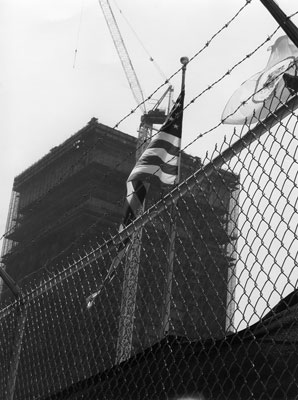All Nonfiction
- Bullying
- Books
- Academic
- Author Interviews
- Celebrity interviews
- College Articles
- College Essays
- Educator of the Year
- Heroes
- Interviews
- Memoir
- Personal Experience
- Sports
- Travel & Culture
All Opinions
- Bullying
- Current Events / Politics
- Discrimination
- Drugs / Alcohol / Smoking
- Entertainment / Celebrities
- Environment
- Love / Relationships
- Movies / Music / TV
- Pop Culture / Trends
- School / College
- Social Issues / Civics
- Spirituality / Religion
- Sports / Hobbies
All Hot Topics
- Bullying
- Community Service
- Environment
- Health
- Letters to the Editor
- Pride & Prejudice
- What Matters
- Back
Summer Guide
- Program Links
- Program Reviews
- Back
College Guide
- College Links
- College Reviews
- College Essays
- College Articles
- Back
All Quiet on the Western Front by Erich Maria Remarque
Following my second reading of the book titled All Quiet on the Western Front, I gained a deeper understanding of Remarque’s purpose for composing this story: to demonstrate the cruelties of war. More specifically, through his descriptions, Remarque shows the intensity of the war camps in which a comfortable life is impossible and to explore how much a death caused by war destroys families. For me, this book presents to the entire world views of heroic rationalism and what I perceive to be the disgusting aspects of human nature. The book is rather a good one, though, because it is a genuine depiction of war imparted by someone my age.
In fact, I usually detest reading war books. They are either continually depicting deaths, or the depressing reactions from the family of lost loved ones, or the sorrows of battles or, most importantly, I do not like them because of the deceit that goes into promoting heroic nationalism convincing young people to join the war effort. I feel that this propaganda is deceitful and leads to the deaths of innocents. However, in this book, I see the war from a different perspective – from a view of a teenager who becomes more and more disappointed with the world which eventually leads to his despair for both the purpose of living and to his negative feelings about the deceptiveness of joining the military. This brings me a closer view of what war is really about than those tall tales I’ve read in the past.
The most mournful part of the book for me is how the war has obliterated and destroyed Paul’s, the main character’s, desire to explore the world. As an innocent teenager who is supposed to have the curious to discover life and fantasies for the future, Paul suffers more than he should under the name of nationalism. For instance, he learns the truth about what it means to beg for food; he starts to understand the deceptiveness of adults; he starts to realize there is no need for nationalism; and he starts to fight for his life. The war makes Paul and others lose their humanity. They selfishly utilize people based on their own desires. As a truth, people usually consider themselves first, especially in severe conditions, such as how Muller only thinks about Ken’s boots when he is about to die or how the authorities like Kantorek always persuade his people to gain honor for him but never steps into the war himself; or how Paul decidedly chooses to kill the French soldier in the dig.
According to the book, and something that I support, nationalism and wars are honorable, but only to the people who sit and do nothing but engage and promote other people to join. The honor never comes to the people who suffer from the war and so-called nationalism. Each time I reread the last part of the book, where Paul dies, I feel grieved of how society has changed him and how it obliterated his dreams. He no longer has the ability to establish himself and create goals; he no longer knows the meaning of living except for going to war; and, most dishearteningly, he no longer thinks he belongs to society after the war. All he gains from the war, after being recruited by his schoolmaster, is the daily routine of the war which stamps his memories in negative ways. The war ultimately makes him give up his teenagerhood.
I realize that the sad thing about society is not how horrible our human nature functions or that everyone knows how horrible it is but that no one wants to admit or fight against it. We laugh and taunt at how disgusting human nature can be, but we neglect sometimes to recognize and praise the good characteristics that other people show in times of war and not in times of war. We must not be spectators for the common good, but we must promote values that do not hurt others like war can do.

Similar Articles
JOIN THE DISCUSSION
This article has 0 comments.
